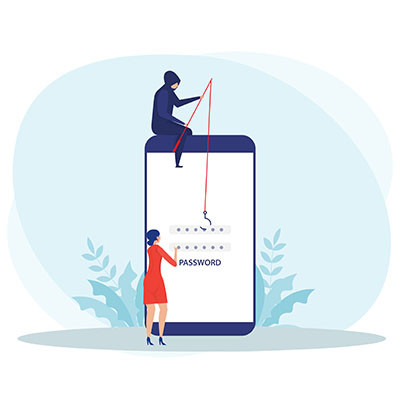WatchPoint Solutions Blog
Be Wary of the Links You Receive
If PayPal randomly texts or emails you telling you that it has suspended your account, while also asking you to authenticate your identity with a random link, then think twice before clicking on the link. This is a common tactic used by hackers to break into accounts just like yours, and we urge you to instead access your account the way you normally would.
Let’s look at why this is an important practice:
Hypothetically Speaking, What Would You Do?
It’s safe to say that no one wants to fall for a phishing scam, but at the same time, it can be tempting to trust the message to ensure there is nothing wrong with your account.
The best approach is simple, but not one that we intuitively think to do.
Rather than using the provided link, a matter of convenience, open up a new web browser tab and go to the website the way you would normally access your account. It doesn’t really matter what type of account you’re accessing—it could be your bank, a favorite retailer, or any website you have an account with—this practice will work with all of them. Just go log into the site in question directly without using the link in the suspicious email. This simple practice will do a lot to keep you from suffering from a phishing attack.
Let’s Work Together to Train Your Team and Keep Them Safe
If you want the best tools and resources on the market to handle the growing number of phishing and security attacks, look no further than WatchPoint Solutions. We can build your business’ defenses and train your team on best practices for identifying potential threats. Get started today by calling us at (848) 202-8860.

Comments